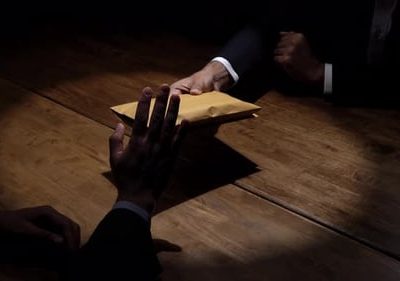THE battle for the highest job in the courts is far from over as ZIMBABWE’S High Court and Supreme Court judges once confirmed the existence of the capture of the judiciary by politicians as they hit out at “manipulative” Chief Justice Luke Malaba in a stinging letter addressed 7 months ago to President Emmerson Mnangagwa.
Fast foward seven months later, HUMAN rights lawyers and civic groups are piling legal pressure for Chief Justice Luke Malaba to resign ahead of his 70th birthday on Friday, instead of accepting a flawed extension of his retirement age by five more years through the recently signed constitutional amendment.Malaba turns 70 this Friday and was set to retire according to the Constitution, before President Emmerson Mnangagwa last week hastily signed the Constitution of Zimbabwe Amendment (No 2) Bill into law, which will now allow judges to continue serving on the bench until they reach 75.
THIS has opened a can of worms as the battle rages on In a letter of complaint, dated October 26, 2020, the judges revealed morale was at an all-time low within the judiciary over Malaba’s alleged interference with their work.
They also accused the judiciary chief of employing an overplaying hand regarding court judgements, adding that many of them were operating in fear of being victimised instead of being objective.
“What is reported in the public domain and on social media about the capture of the judiciary is no longer fiction or perception, it is in fact reality,” the judges said in their no-holds-barred letter.
The judges accused Malaba of interfering with magistrates and their decisions through the office of the Chief Magistrate.
“At the superior courts, it is an open secret that judges no longer enjoy any respect and that administrative staff now spy on judges and report to the various Registrars who in turn make reports to the Judicial Services Commission secretariat for onward reporting to the Chief Justice,” the letter reads.
The judges said they have lost trust in their supporting staff who they described as spies and have now resorted to hiding their judgements in fear of being directed to change them.
According to the judges, they were being pushed into making “safe” judgements to protect their jobs, a claim that confirmed fears of interference and capture of the judiciary often raised mainly by the opposition and activists.
Prosecutors, the judges claimed, have become the “new judicial officers” and report to other structures outside the court processes.
“Any attempts to protect the interest of accused persons and other litigants are promptly reported to the Chief Justice’s office who thereafter directs heads of the various courts/divisions to investigate these.
“Judges are therefore now so afraid of their own jobs that they consciously and subconsciously make decisions that they consider ‘safe’, even if these do not accord with the law,” the letter further reads.
Malaba, the judges allege, is influencing judgements by ordering judges to rewrite judgements adding that no judgement is passed without his approval.
“It is an open secret that no Supreme Court judgment can be delivered without the Chief Justice’s approval,” the judges said.
“It is also an open secret and a source of much disquiet that all draft judgments in the Supreme Court are circulated amongst all the judges including those who did not hear arguments on the matter.
“Judges who did not hear arguments on a particular case can influence the result without having even read the record.”
The judges also complained of the conditions of service arguing that they were receiving “worthless” RTGS fuel coupons leaving their drivers to “burn more fuel” in search of garages accepting local coupons.
On salaries, the judges said even newly qualified lawyers now earn more than them making it impossible to properly dispense justice as they are now “constantly worrying about day to day family issues.”
Presidential spokesman George Charamba declined to comment saying: “I have nothing to say on that.”
Legal experts yesterday said the “undue and indecent haste” in which the amendments were pushed through raised suspicion that it was “inextricably intertwined” with Chief Justice Malaba’s impending retirement.
Harare lawyer and executive director of the Zimbabwe Human Rights NGO Forum, Musa Kika, on Monday filed an urgent High Court application suing Justice minister Ziyambi Ziyambi and all judges of the Supreme Court and Constitutional Court over the matter.
Kika’s application comes at a time when civic society organisations, the opposition MDC Alliance and other stakeholders have threatened multi-faceted action to oppose the constitutional amendments, saying they would slide Zimbabwe into authoritarian rule.
The NGO Forum boss is seeking an order to have Chief Justice Malaba cease to hold the office of the Chief Justice at midnight on May 15, 2021 and have his deputy, Justice Elizabeth Gwaunza, take over in an acting capacity pending the appointment of a substantive Chief Justice below 70 years of age.
“Any action, conduct or deed of Luke Malaba post the 15th of May 2021 purportedly as the Chief Justice of Zimbabwe is null and void and of no effect,” Kika wrote in papers filed on Monday.
“It was also clear that the purpose behind the amendment was to assail judicial independence. It is a matter of regret that the impression is given that the honourable and distinguished judges concerned are being made to receive a favour, one which is fundamentally improper under the circumstances.
“In accordance with provisions of section 164(1) and (2), the developments that have led to this application also constitute a deliberate and calculated assault on the independence of the judges concerned. Such independence has been assaulted by the first respondent.”
Kika, who is being represented by Advocate Thabani Mpofu, added that the Constitution provided that “members of the Judiciary should not receive any gift or favour that may give the appearance of judicial impropriety”.
He said the clause on judges’ retirement age was rejected during public hearings in December 2019, but Parliament chose to pass it all the same, plunging the country into a constitutional crisis.
The Constitution of Zimbabwe Amendment No 2 Bill was last month fast-tracked by Ziyambi in the National Assembly before Zanu PF and MDC-T senators voted for it on May 4 in the Senate, with Mnangagwa signing it into law three days later.
“In view of the correct legal position, whether the amendment be valid or otherwise, the fact of the matter is that it cannot benefit the respondents,” Kika added.
“I also point out that the general failure to adhere to the law has caused an avoidable constitutional crisis. By now, the second respondent should have proceeded on leave to make for a proper transitional mechanism.
“There is danger that the second respondent may continue in office post the 15th of May 2021 and that if he does that, all his actions would be void. These include the administration of the Judiciary and the resolution of disputes in court.”
In another High Court application filed yesterday by Harare lawyer Paul Christopher under case number HC/21, the applicants, Young Lawyers Association of Zimbabwe, and Fraderick Charles Moses Mutanda, who is the second applicant, also stated that if Chief Justice Malaba’s term of office was extended, this would plunge the nation into a constitutional crisis.
They cited the Judicial Service Commission, Chief Justice Malaba and Attorney-General Prince Machaya as respondents.
In a tweet, the Zimbabwe Congress of Trade Unions said: “If Chief Justice Malaba accepts the extension of his tenure under the circumstances, the Judiciary will lose any residual respect it still has. He then becomes a politician. Politicians usually do stupid things, but judges are expected to be beyond reproach.”
Lawyer and MDC Alliance vice-president Tendai Biti said the “fight to protect our Constitution is reaching fever pitch. By the end of the week, a record number of applications will have been filed to protect the Constitution. Our efforts as lawyers should be complemented by peaceful constitutional civic action.”
Chief Justice Malaba, who has been accused of political bias in the manner he conducted his duties, was appointed to the post in March 2017, replacing the late Godfrey Chidyausiku.









Comments